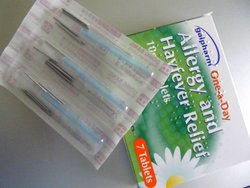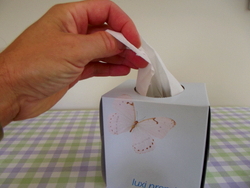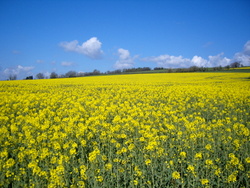
Results of a pilot study carried by University Hospital Dresden in Germany, suggest acupuncture may be as effective as antihistamines in patients suffering from allergic rhinitis induced by house dust mites. A total of 24 such patients were treated for three weeks with either acupuncture or loratadine, a commonly-prescribed antihistamine. Patients were interviewed again at follow-up ten weeks after treatment. On the basis of patients’ subjective assessments, both treatments were considered effective, but the beneficial effects of acupuncture tended to be assessed as more persistent after treatment had ended.
The researchers conclude acupuncture is a clinically effective therapy in the treatment of persistent allergic rhinitis. The results indicate the probability of an immunomodulatory effect.
(The effectiveness of acupuncture compared to loratadine in patients allergic to house dust mites. Journal of Allergy, 5 June 2014. http://www.hindawi.com/journals/ja/2014/654632/)



 A large German randomised controlled trial has examined the effectiveness of acupuncture plus routine care, compared to routine care alone, for patients with allergic rhinitis. Over 5200 patients, mean age 40 years, were randomly allocated to receive either 15 acupuncture treatments over three months, or to receive no acupuncture. All were allowed to receive standard medical care. Treatment effectiveness was assessed at the start of the trial, and again at three and six months. Using the criteria of rhinitis symptoms and general quality of life, the researchers conclude that acupuncture for allergic rhinitis in addition to routine care, gives clinically relevant and persistent benefits.
A large German randomised controlled trial has examined the effectiveness of acupuncture plus routine care, compared to routine care alone, for patients with allergic rhinitis. Over 5200 patients, mean age 40 years, were randomly allocated to receive either 15 acupuncture treatments over three months, or to receive no acupuncture. All were allowed to receive standard medical care. Treatment effectiveness was assessed at the start of the trial, and again at three and six months. Using the criteria of rhinitis symptoms and general quality of life, the researchers conclude that acupuncture for allergic rhinitis in addition to routine care, gives clinically relevant and persistent benefits.